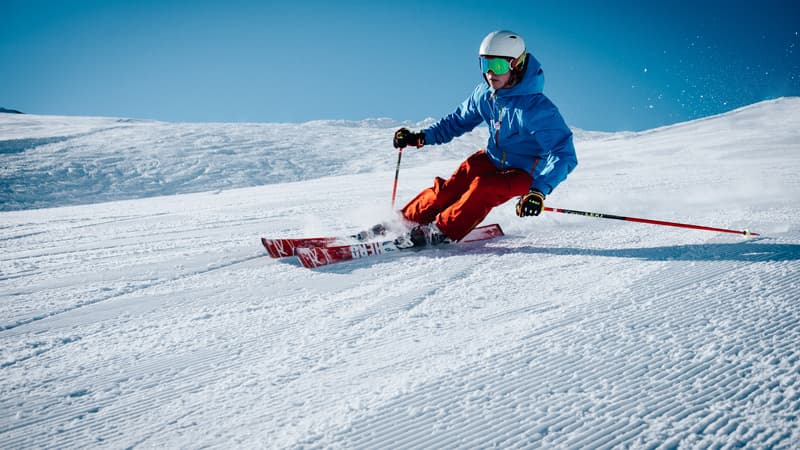The future of skiing will be connected. Equipment manufacturers, whether they are big brands or small companies based in France or abroad, compete with ingenuity to develop the new products of tomorrow. Its objective is to satisfy the expectations and needs of skiers, who are increasingly fond of products capable of enriching their experience on the mountain, helping them to improve and measure their performance on the slopes. For this reason, in this context, connectivity, a growing trend in this sector conducive to innovation, is at the center of the concerns of many players.
This is particularly the case for Rossignol. After already embarking on the adventure in 2015 due to a collaboration with the company Piq, the French brand, emblematic of winter sports, repeats this year offering a new connected skiing experience: the “Smart Ski Experience” self-sufficient energy detector. This tool, compatible with Bluetooth and developed in collaboration with the company Lumiplan and the CEA of Grenoble, should allow skiers to significantly optimize their skiing techniques, monitor their progress and preserve the condition of their equipment.
Sensors to determine ski wear
For good reason, this tool, which is installed on a pair of skis, is capable of collecting precise data (force of support on the skis, rate of turns, speed…) and restoring it, via a mobile application. , in the form of a score that determines the technical level of the skier.
“Smart Ski Experience”, currently being tested with the general public within the framework of the Alpine Ski World Championships in Courchevel and Méribel (from February 6 to 19), also aims to extend the useful life of the equipment since it the sensor also monitors the state of wear of the skis
The latter are not the only winter sports teams evolving towards greater connectivity. This is also the case with ski helmets. And in this area, the Chinese company livall Get out of the game with the RS1 Smart, a model loaded with smart features designed to improve the sliding experience and safety on the slopes.
Compatible BluetoothThis product thus allows the reception and transmission of telephone calls and also incorporates a walkie-talkie, an anti-loss alarm system and an accident detector.
An exoskeleton to facilitate gliding
Other products aspire, for their part, to reduce fatigue on the slopes. This is particularly the case with Ski-Mojo, a mechanical exoskeleton developed by the French company of the same name, capable of reducing the weight of the skier by a third to allow him to extend the duration of his sessions on the slopes and reduce the risk of injury. This mechanical framework, attached to the legs, knees and calves and connected to the ski boots, will act as an additional muscle.
In fact, the equipment preserves the integrity of the lower limbs, in particular the knees and hips, to avoid contracting pain. Lighter thanks to 15 kilos less vertical pressure per leg, the skier can move more easily and better understand the turns and trajectory of their skis. A unique product that gave rise to a new discipline, augmented skiing, which now organizes its own World Championships.
Source: BFM TV


